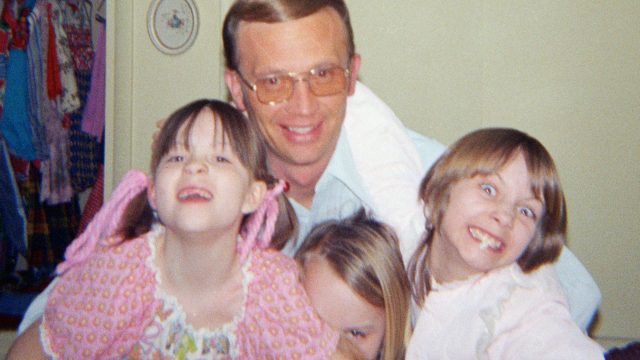Abducted in Plain Sight (originally titled Forever ‘B,’ and renamed to sound more like a Lifetime movie) is a stripped-down true crime documentary that almost defies belief. It’s a record of so many follies, inexplicable choices, and weird horrors that you would never get away with it in fiction. The film almost can’t get away with it as nonfiction, either: it exists as a queasy kind of journalism, human horror and tragedy documented in a way that almost can’t help taking on the cadences of comedy.
Talking about the specifics of misery, especially unusual misery, is often hard. What is Jan Broberg, the woman whose girlhood kidnapping is central to Abducted in Plain Sight, to do with her story, if she wants to share it? She can simplify it: she was kidnapped, gaslit, and raped by a family friend, and the abuse carried on for a prolonged period of time. Even that already puts her at the far edges of human experience–rape is unfortunately common, and most people could come up with some idea of how to emotionally respond to this kind of confession, but the kidnapping makes it stranger and more extreme. And the actual truth of Jan Broberg’s ordeal is stranger and more extreme still, involving her kidnapper (Robert “B” Berchtold) convincing her that she needed to conceive a child with him in order to save an alien race, kidnapping her again two years later, and also (between the two kidnappings) having an affair with her mother, who was aware the whole time that he was the man who had kidnapped and raped her daughter. The movie tells its story without outside analysis or explanation. The story may partly be about Berchtold, but it’s narrated by the people around him, some of whom were so thoroughly conned that even now they don’t quite see how it could have happened and don’t know how to parse or explain their own behavior. That doesn’t apply to Jan Broberg, who was a child lied to by a trusted adult, but it certainly applies to her parents, whose decisions often seem baffling. But as an adult, Jan defends her parents: Berchtold warped reality around him. “This man was a master,” she said in a tweet responding to this criticism, “and my parents saved my life. They’re the bravest people I know, willing to try to help the rest of you see what they didn’t. That is the only reason we told our story.”
But it’s hard to imagine how one can ever be armed against manipulation that worked so thoroughly that your behavior seems almost motiveless to people outside the story. Abducted in Plain Sight may have been intended–at least by the Brobergs–to help warn others of how this kind of grooming (of both children and adults) can function, but if that’s the case, it fails; it tells us that that happens, but it’s hard, watching it, to understand why. Instead, the movie becomes a slightly sensationalized attempt to do the nearly impossible task of telling the story as it appeared to the people involved at the time, no matter how bizarre it looks to anyone else. Whatever the follies of that approach, and whatever the intentions of the filmmaker (Skye Borgman), there’s something genuine about that. The Brobergs succeed in telling something virtually untellable. If it can’t help prevent something similar from happening, it may nonetheless help someone who has already gone through something similar, someone whose story is equally strange and far more secret.
If Abducted in Plain Sight tells a larger story, it’s less about seventies naivete or pedophilia or even manipulation and more about the way certain histories–even our own–seem to defy explanation, but are real nonetheless, and must be dealt with.

